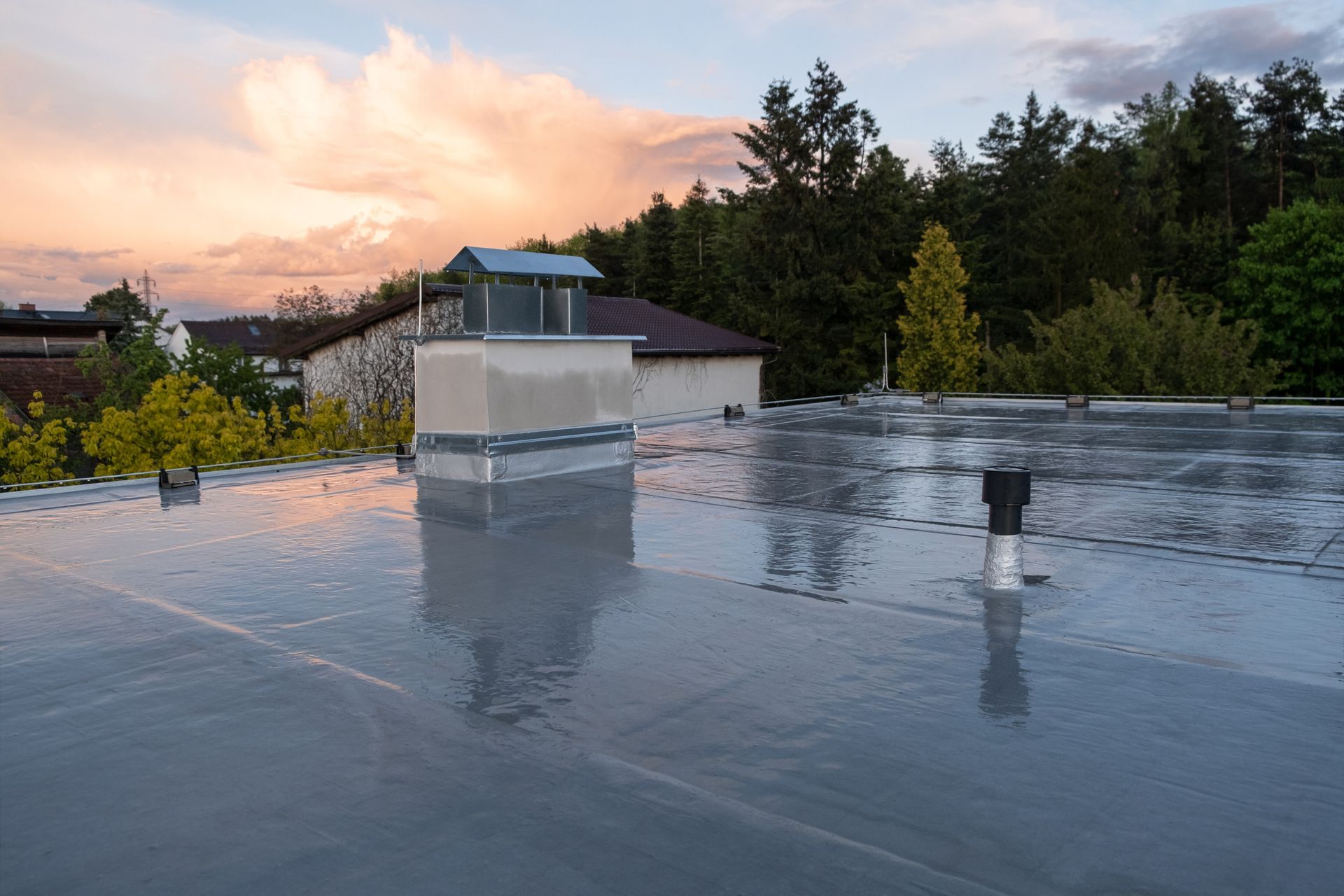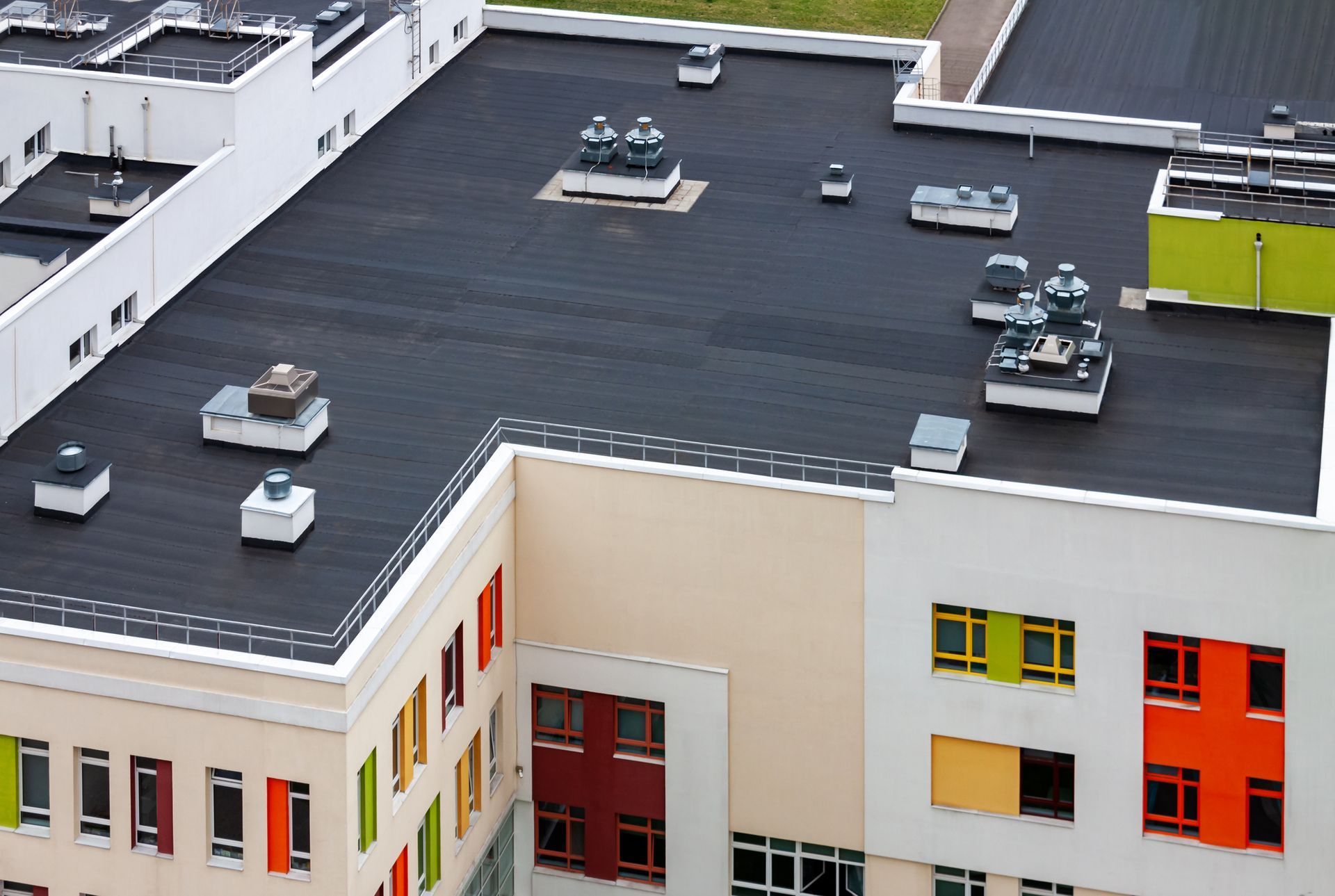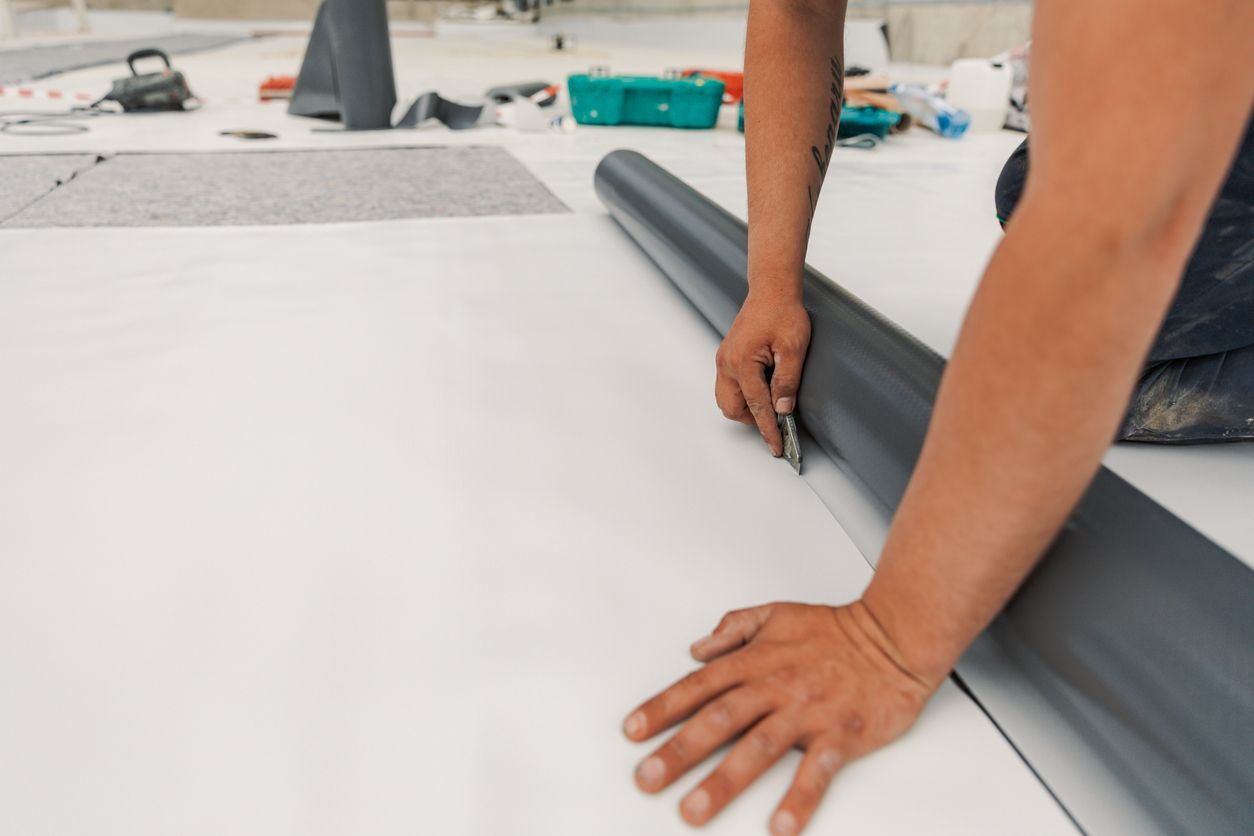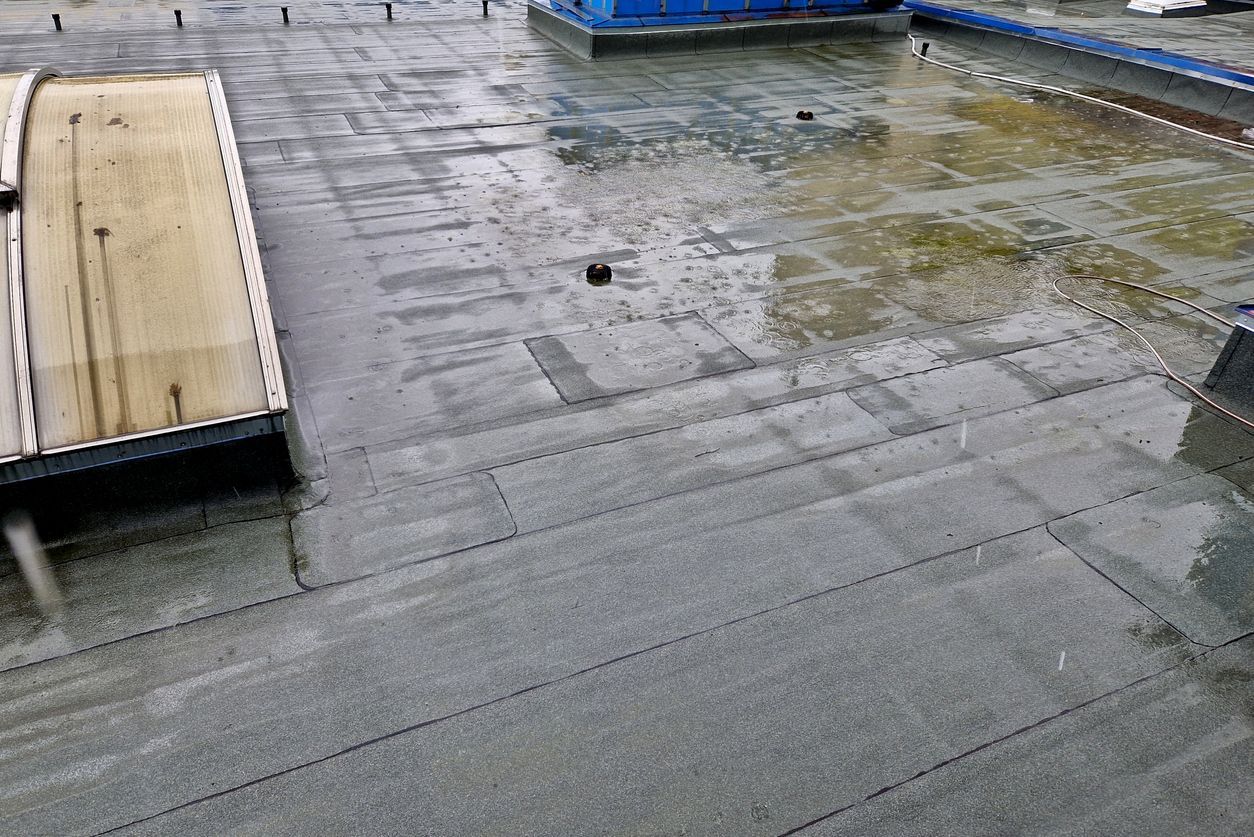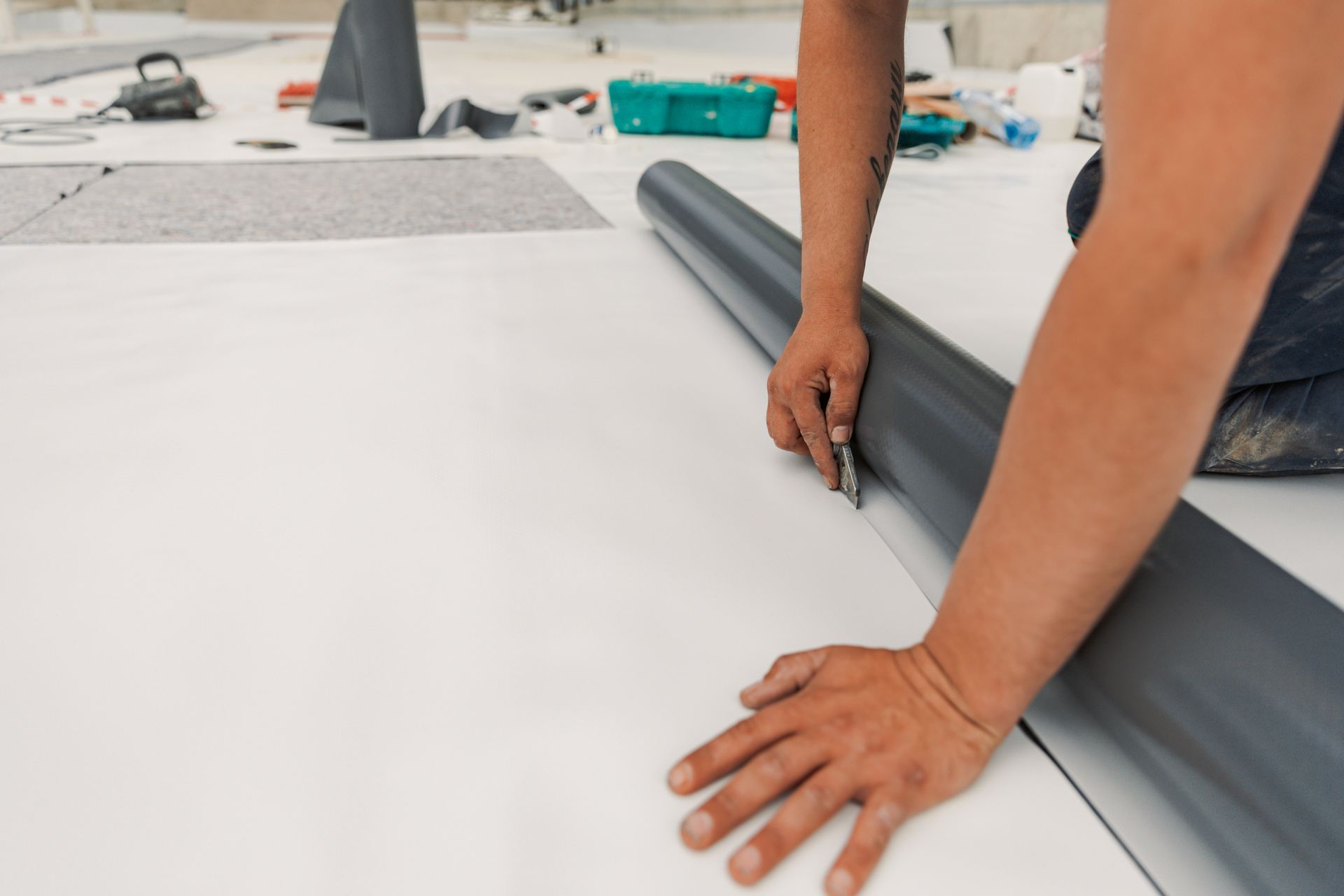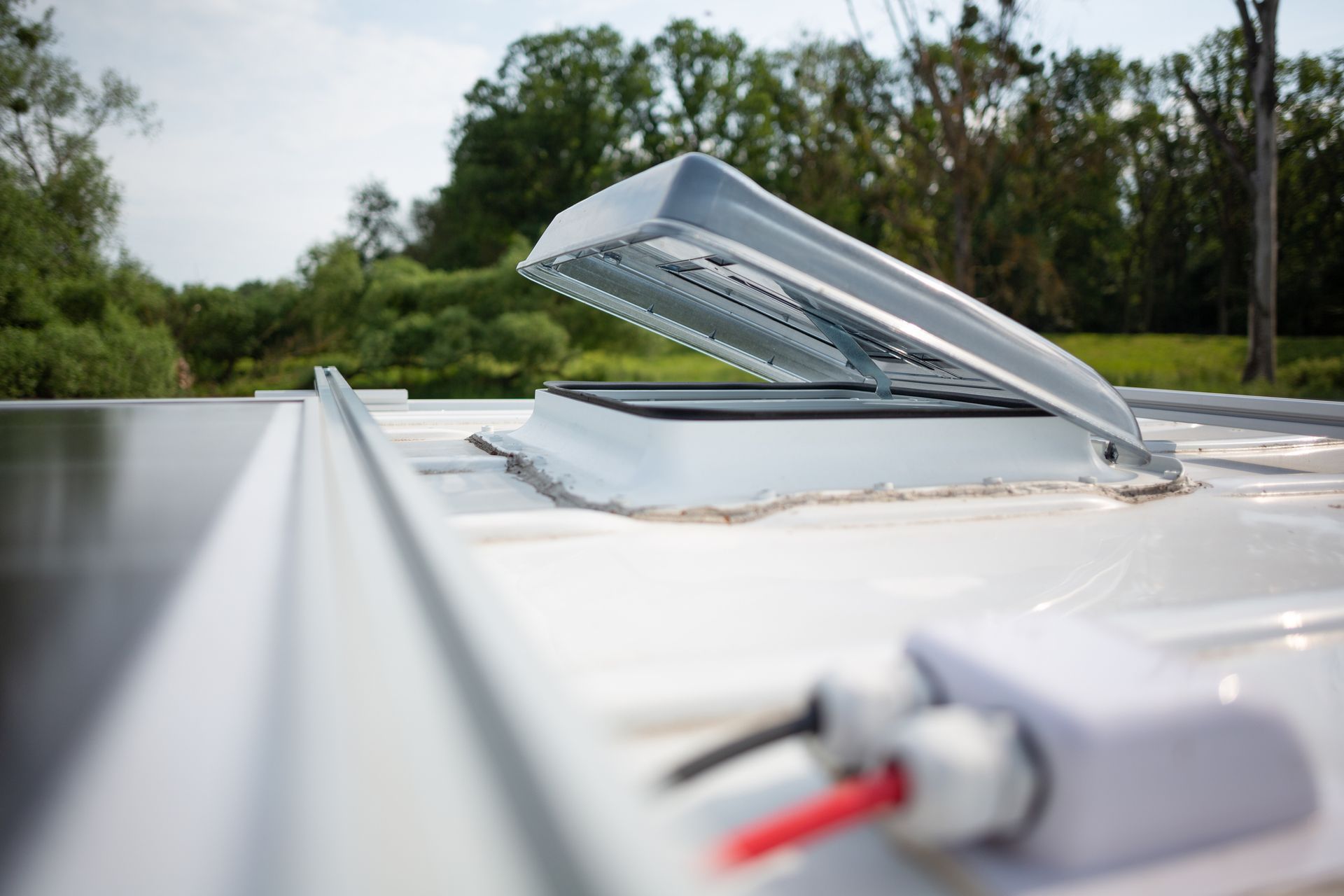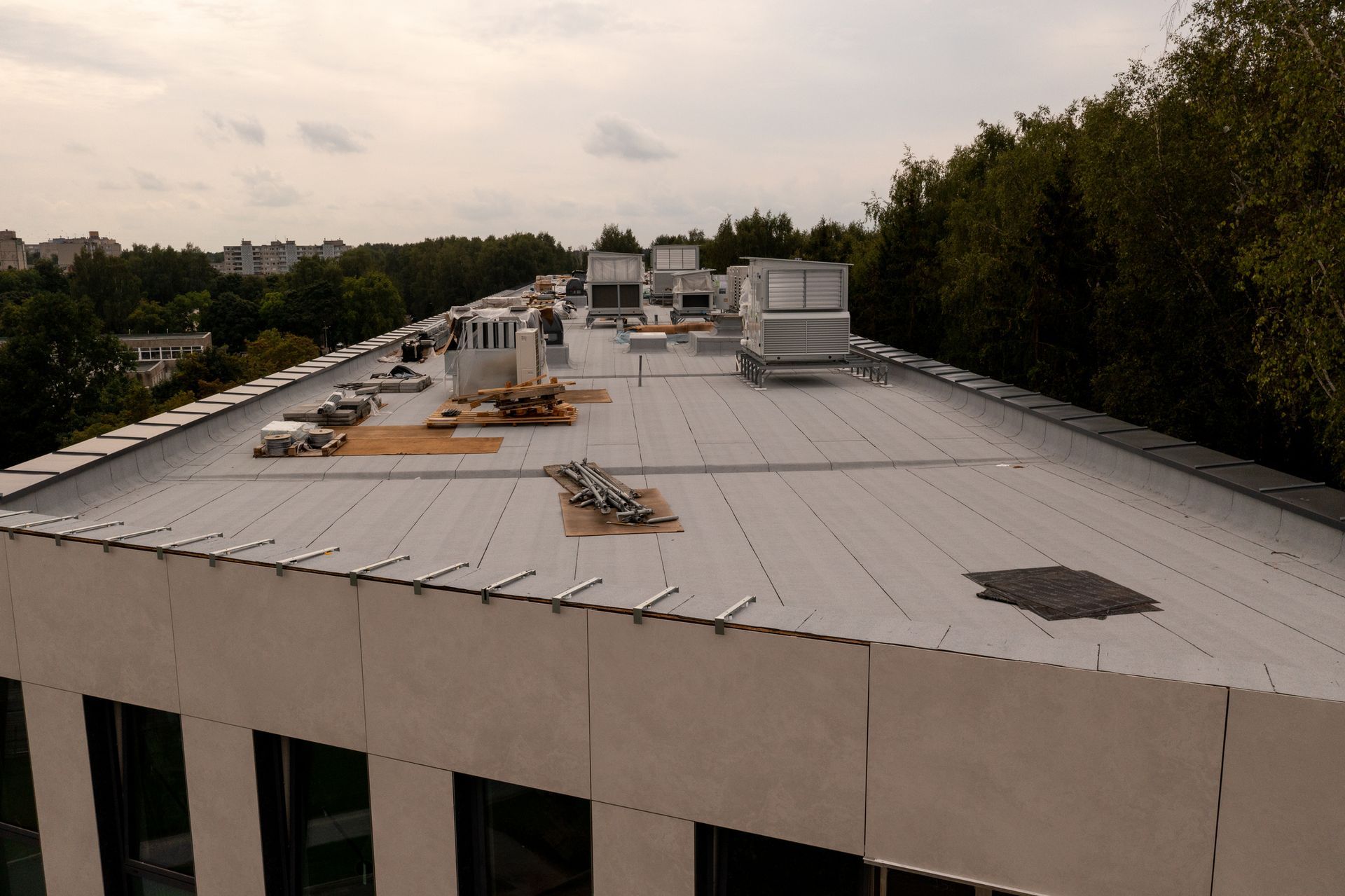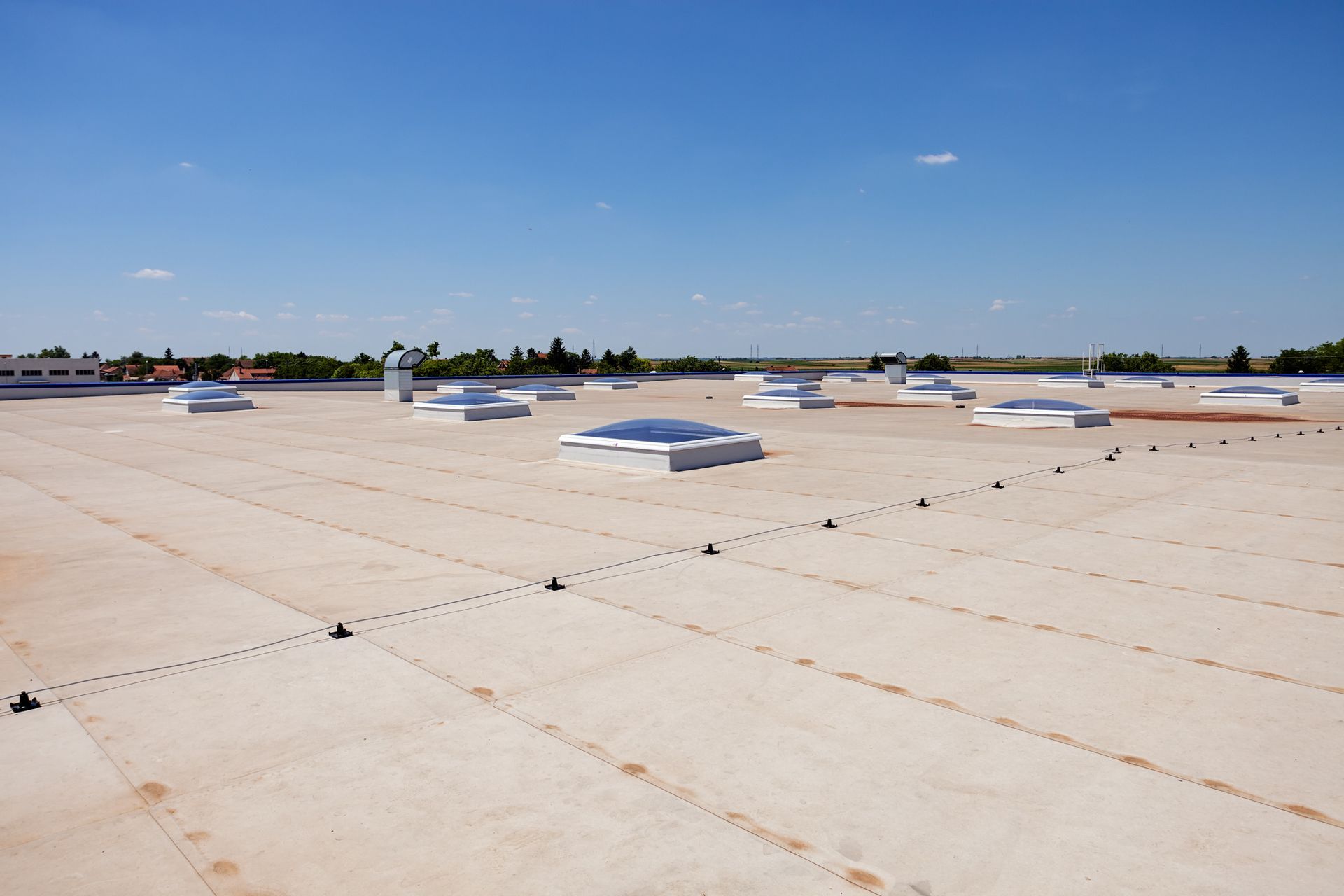Everything You Need to Know About Commercial PVC Roofing
If your business operates under a flat or low-sloped roof and you're in search of a roofing solution that strikes the perfect balance between durability, energy efficiency, and cost efficiency, PVC roofing could be your solution.
PVC, or Polyvinyl Chloride, is a single-ply roofing membrane composed of high-grade polymer materials reinforced by polyester scrim. Its rise in popularity in the roofing industry is owed largely to the benefits of reflectivity, installation, and weathering resistance.
How Long Will a PVC Roof Last?
PVC roofing is synonymous with durability and weather resistance. Not only is PVC roofing puncture-resistant it is capable of withstanding UV rays, hail, and wind. This makes it an easy choice for areas with extreme weather conditions.
With a watertight welded seal, PVC roofing offers barriers against water leaks and damage to roof structure. If your roof leaks frequently and requires constant repairs, , PVC roofing is a viable option for your new roof.
Is PVC roofing energy efficient?
The short answer is – yes! PVC roofing creates an energy-saving effect thanks to its reflective white surface that deflects sun's heat. You can get PVC roofing in other colors, but the reflective property helps keep your building cooler and reduce energy costs.
How much does PVS roof cost?
Compared to other popular roofing options like EPDM and TPO, PVC roofing is a cost-effective solution. Mass production of PVC roofing make it a budget-friendly option for both roofing contractors and property owners.
Additionally, with its streamlined installation process, PVC roofing saves on material costs and slashes labor expenses, making it a practical choice if you're navigating within a tighter budget.
Can You Walk on a PVC Roof?
PVC roofing is easy to install because it is lightweight and remarkably flexible. That being said, yes, you can walk on a PVC roof (with soft shoes), making it conducive for routine maintenance without fretting over damage.
Maintenance Made Easy:
How Do You Maintain a PVC Roof?
Maintaining a PVC roof is relatively straightforward, and with minimal effort, you can significantly extend its lifespan. Keeping your PVC roofing in the best condition involves regular inspections and routine cleanings, ensuring it continues to provide reliable protection for years, if not decades. To support property owners with maintenance tasks, All Season Roofing has developed a specialized maintenance program. This program not only emphasizes the importance of these practices but also offers professional assistance in performing them.
TPO vs. PVC Roofing: Which is Better?
While TPO and PVC roofing both present advantages, choosing between the two hinges on your needs. PVC's superior resistance to chemicals, grease, and fire, coupled with its longevity and low maintenance requirements, often makes it the preferable choice for many commercial applications.
Installation Insights: How is PVC Roofing Installed?
The installation of PVC roofing is an efficient process that creates less disruption to everyday operations because it can be installed in a number of ways: mechanically attached, fully adhered, or ballasted. The availability of various installation methods allows for flexibility, ensuring a fit tailored to the unique demands of your commercial property.
Opting for PVC roofing can mean a cost-effective, durable, and energy-efficient roofing solution. Should you consider PVC roofing for your commercial needs,
the experts at All Seasons Roofing are ready to answer your questions.
